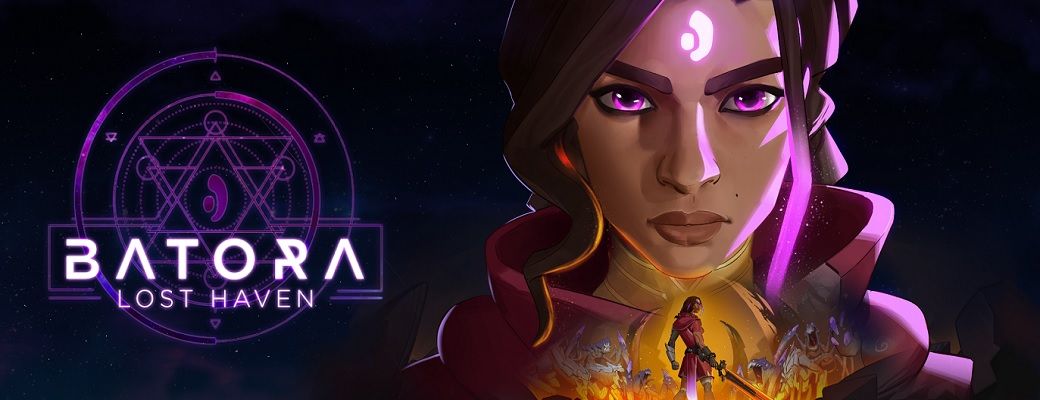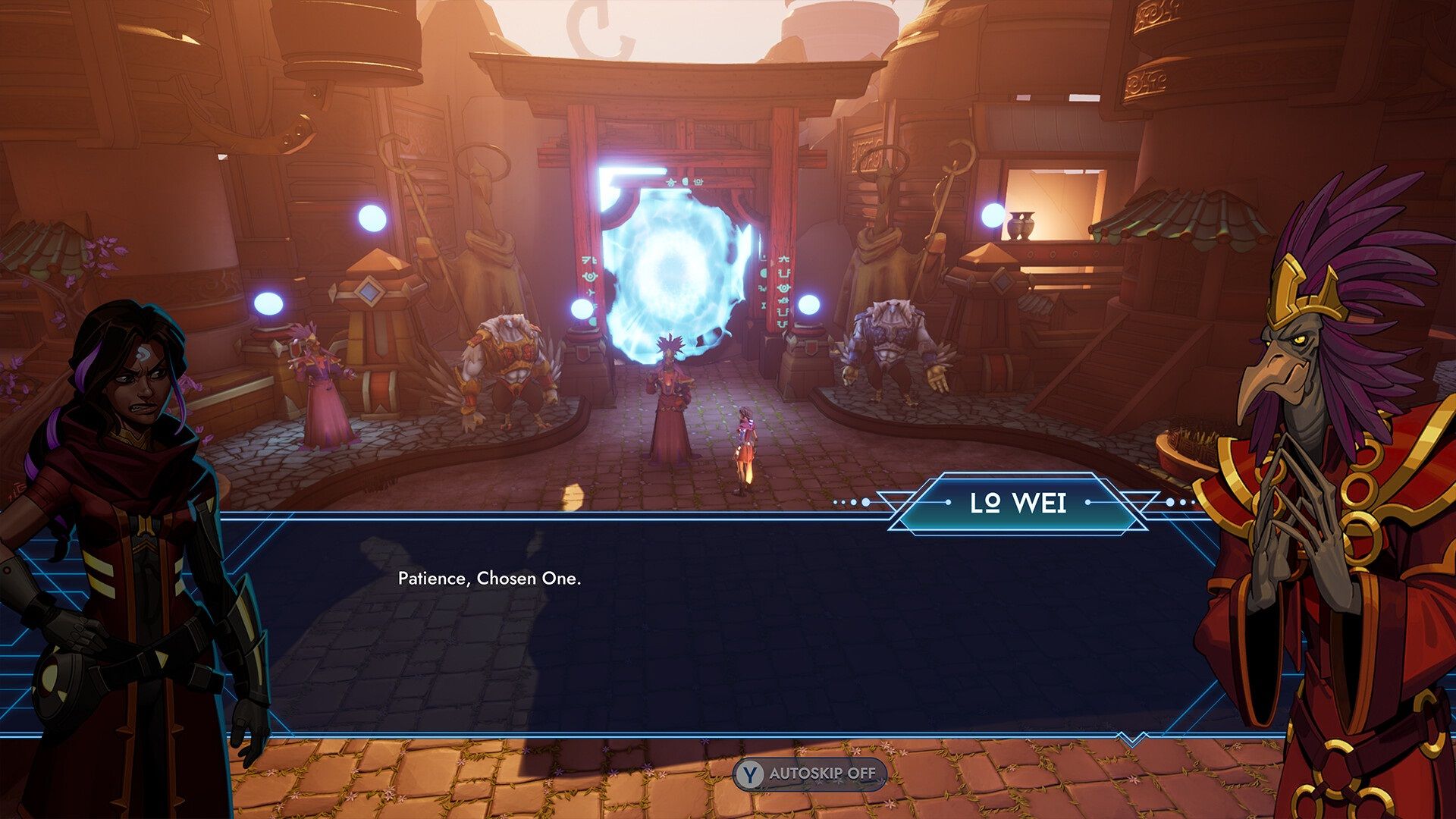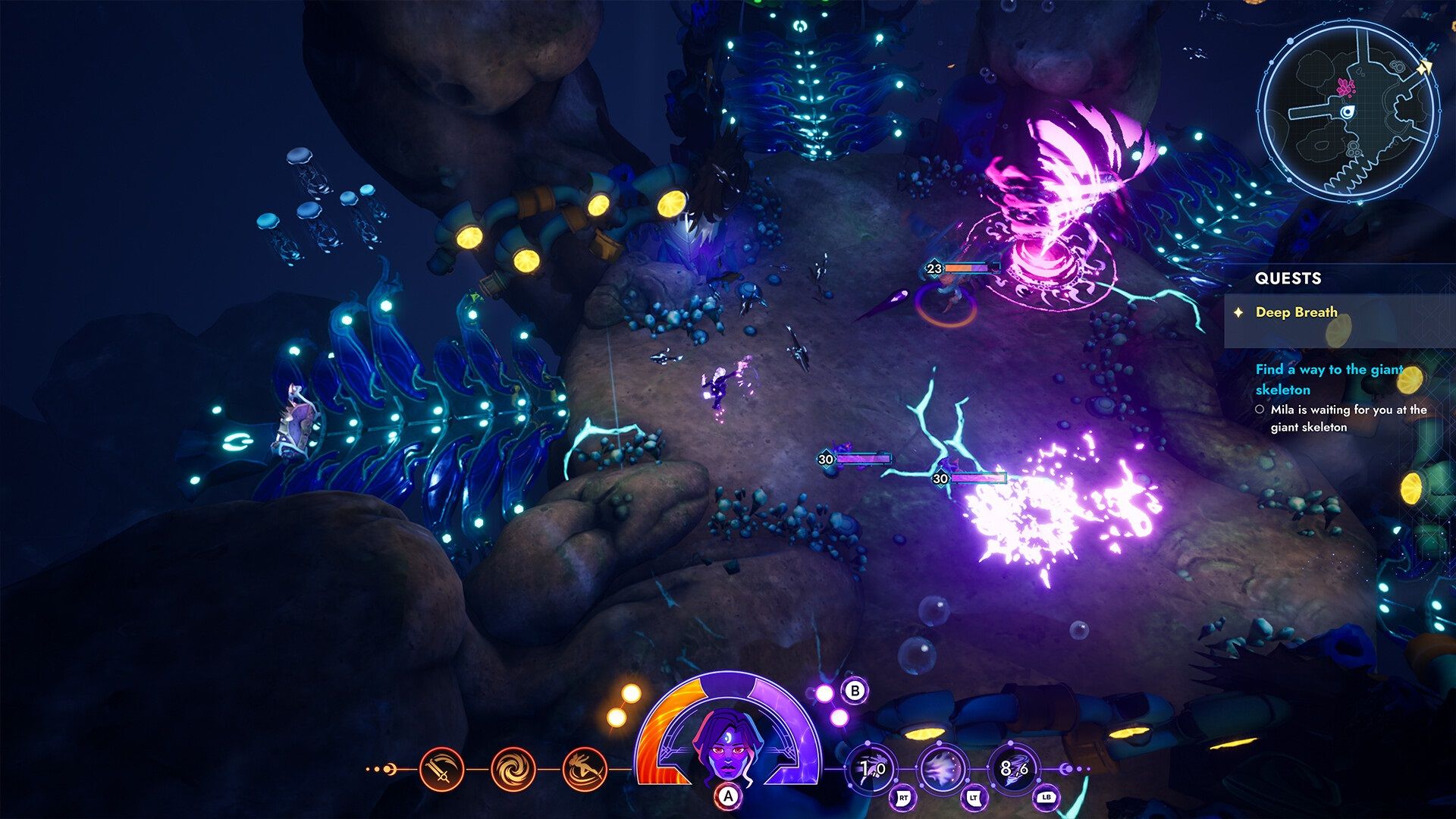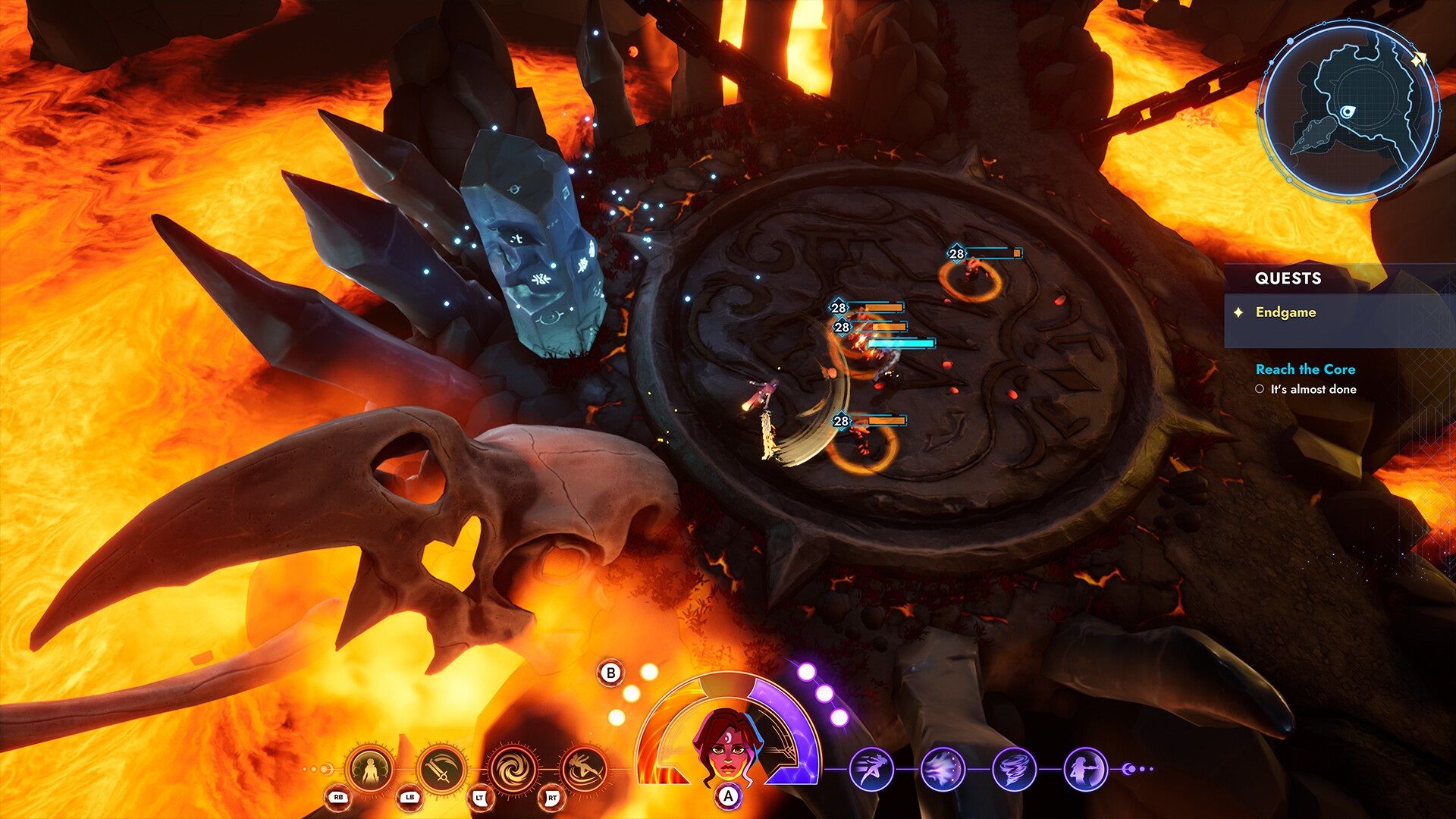“Hey folks, we’ve done a couple of creepy, sticky horror games that got some traction. How should we follow up?” is how I imagine the design process for Stormind Games’ latest began. “We know how to do gore, so let’s do a more cutesy action-RPG filled with cute speak and a couple of sassy friends trying to save the galaxy,” must have been the response. The weird thing is that it’s actually not a terrible idea. The Remothered games started with an entry that held real promise if the developers could refine things, but the follow up didn’t stick the landing. Branching out to a new genre and feel is a smart move for a fledgling studio and the result, Batora: Lost Haven, signals exciting things for the studio, but isn’t at the level of required playing just yet.
The game centers around the heroine Avril and her friend Mira. Denizens of a post-apocalyptic Earth (no one knows what brought about the calamity; just that the majority of the population is dead), Avril goes exploring ruins based on a hunch brought about by a strange dream. She has a feeling that she us being led to something important. Through the expected pratfall, she finds the source of the dreams. Turns out that the gods Sun and Moon want her to collect their power and go save the galaxy, giving them a crash course on how to fight, then immediately throwing the duo onto an alien planet to find their way. They do pop up to provide advice on decisions from time to time, typically disapproving of more altruistic measures. In practice, though, they are the most negligent helicopter parents possible. It’s a strange dichotomy that hints too much at some of the revelations that are supposed to be surprises, but the story works in spite of itself.
Much of that “working” comes down to two different things. First, the relationship between Avril and Mira helps lighten the mood and keep things going. It has to be admitted: at first, it felt too forced. The actors playing the characters went for “community theater Joss Whedon” in their reading and it’s rather grating. As the game progressed, though, I came to like the pair. Whether this is a symptom of Stockholm Syndrome or if the actors grew more comfortable with their characters as the story progressed, I can't say for sure. It could also be due to the fact that the game rushes the introduction to get to the actual gameplay, to the detriment of the story. Either way, they became more likable as the story goes on, which helps to raise the stakes. Sure, stopping the apocalypse should be enough, but it was too breezy at the start to feel serious. They also have the benefit of being juxtaposed against the cutesy-wootsey aliens that they help, who can be grating on their own. Though, I did enjoy the titular Batora, an old crone character who serves as a counterpoint to the gods’ pragmatic indifference.
The thing that helped the tale work is the decision to follow through on the consequences of choices made. Batora does the binary alignment choice thing that RPGs like to do. Would you like to serve the orphans lunch or turn them into hamburger for the slathering hordes? Batora has more nuance than that. An early example would be choosing between leaving something behind that will allow a tribe to eat, and thus eliminate the need for their aggression. In doing so, though, a friend will lose his life. Instead of taking the easy way out, the story writers stuck with it. That friend dies and Avril is blamed. It’s actually an affecting moment and brings home the conceit that the choices that can be made are neither good nor bad; they are just choices.
The actual combat does fare quite as well. As Avril is working with two gods, she has two different attack styles: physical and mental. The physical is the standard hack and slash thing, with sword swings and thrusts being the order of the day. Mental is the standard ranged attack that operates like a twinstick shooter. The devs tried to mix it up, with both styles having different moves depending on face buttons or using the right analog stick. In practice, it’s easier to just use the face buttons for physical and the analog stick for mental. As the enemies are color coded based on which they are more vulnerable to, battles can become a combat puzzle, but not a particularly complex one. It really is a matter of focusing on a couple and going to town, swapping polarities as needed.
“Not particularly complex” is how I would also describe the RPG systems as a whole. There's a leveling system, but the game feels like it’s shunting you from quest to quest, so the player is going to pretty much always going to be at whatever level the game says is right. Since the enemies scale, that’s fine. The customization comes from the runes system. When Avril levels up, she has more points that she can use to slot in runes. These do thing like add bonuses to base attacks at the expense of a reduction to critical damage. In theory, this would add flexibility to player style, but since each polarity has its own health bar and attack stats, it’s a good idea to keep them close to even. Since all fights past the first few require use of both mental and physical attacks, beefing up one over the other doesn’t do much, and the system for slotting the runes in and out is just clumsy enough to make pausing and swapping them out a frustrating strategy. The best advice for the player is to find a rune set that works and build off of that when more points are available to use.
If I were to make adjustments to the combat, there are two things I would try. First, there's a dodge move that offers generous invincibility when used. The problem is that the cooldown is way too long, making for annoying situations when dealing with a hairball of incoming attacks and enemies. For balance and to keep things exciting, I would cut the distance moved per dash in half and drastically reduce or remove the cooldown. This isn’t to make the combat easier, but to make it more exciting and engaging. To help counteract this, and to make the runes system more valuable, it would also be a good idea to increase the cooldown on the other special moves, rendering the specials more meaningful.
The final piece to the game comes from its puzzles. There is some ball rolling and a bunch of hitting switches to clear a path to an end goal. None of these ever felt challenging once the player knows which switches do what, making for something that feels more like busy work than a brain teaser. There are times when there's a choice between progressing through battles or opting for puzzles. Even the ones that the player can opt out of, which should be more challenging, are too simple. This is coming from someone who doesn’t consider himself bright when it comes to these things; I didn’t have to brute force a puzzle at any time and kept looking for something more challenging for the sake of review.
Closing Comments:
To be entirely honest, Batora: Lost Haven needed time to grow on me. The opening hours seemed too simplistic; the story too silly. As things moved along and the options opened up, the appeal begins to shine through. It’s not a tough game, nor is it the deepest. Stormind Games instead created a fun little lark with a couple of fun main characters and a story that pulls the player through to the end. There's nothing entirely new to be found across the different planets, but it executes well and does have some impactful moments. As such, Batora: Lost Haven is worth a shot for fans of top down action games and those that enjoy more focused experiences from smaller developers.




